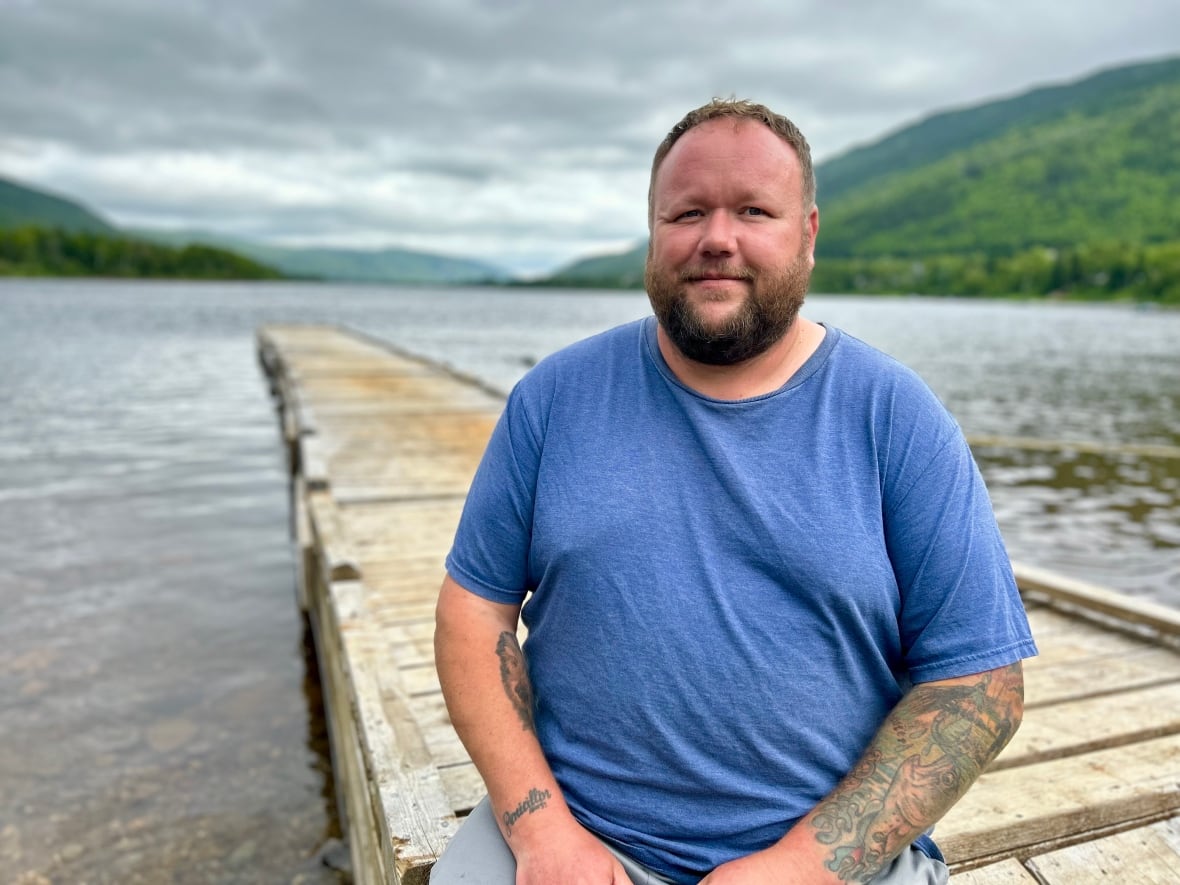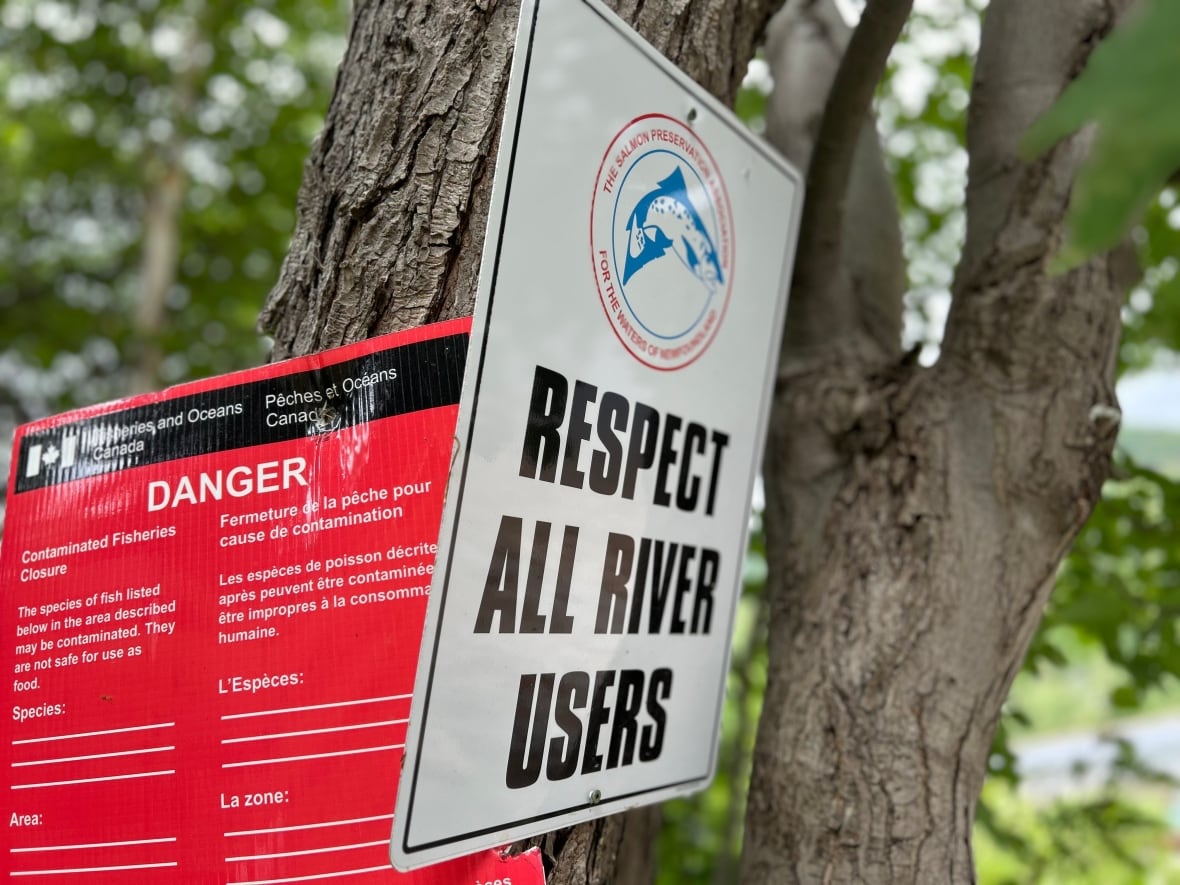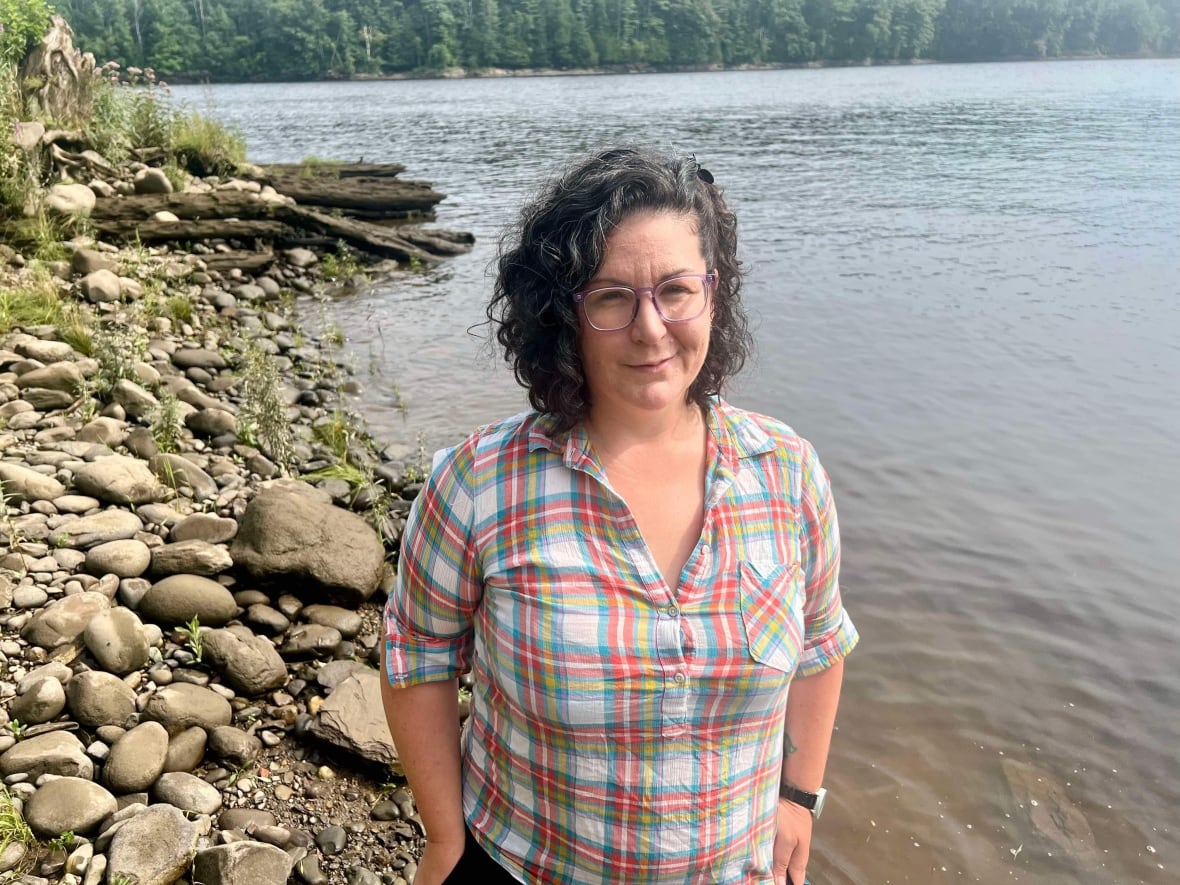This Newfoundland angler is worried about the fate of the Atlantic salmon
Wayne Fitzpatrick says warmer water, lower water levels impacting salmon

Wayne Fitzpatrick has been on the river most of his life. The 44-year-old remembers casting his first line when he was nine years old.
"I find it takes all my stress away being on the river. I love being outdoors," he told CBC News.
But now looking out over the Humber River in Steady Brook, located on Newfoundland's west coast, Fitzpatrick is concerned about its iconic inhabitant — the Atlantic salmon.
"It's more of a survival thing for the fish," he said. "If you're out fishing in the warm temperatures, even if you are catching and releasing, it's a good chance the fish is going to die."
Fitzpatrick said there are two problems making things unbearable for the wild fish; warmer water and lower water levels in the rivers. The culmination of a summer that's seen hotter temperatures and less rain.
For the cold-blood fish, it's a worst case scenario. Salmon cannot regulate their body temperature in warmer waters, and the warmer conditions cause them to run in a sort of overdrive, revving up their metabolism, leaving the fish weak, hungry and oxygen deprived.
"Even for us as humans, if you're stressed you reach a limit," said Atlantic Salmon Federation researcher Valérie Ouellet.
The federation says the optimal temperature for an adult salmon is 13 degrees, and around the 15 to16 degrees mark for growth.
It's a scenario that's led Fitzpatrick to put down his rod.
"I mean up in Big Falls right now, there's no water. There's hardly anything going over the falls. It's bad," he said.

DFO biologist Nicholas Kelly says they've ramped up research and study of the troubled fish.
"It's changes to their habitat that's happened pretty quickly and we have a ton of literature knowing that temperatures in the high twenties are certainly approaching lethal or within the lethal limits of salmon."
Rivers are heating up and drying up. Several of the provinces 200 or so rivers are under DFO closures and orders, which means the Humber River is closed to anglers for all but the coolest hours of the morning
According to the Newfoundland and Labrador government, 60 per cent of North America's best wild Atlantic salmon rivers can be found here.

Fitzpatrick isn't convinced enough is happening to protect those rivers or their inhabitants. He said there needs to be more on the ground patrol as weather worsens for the fish.
"Every year, it's hotter and hotter. We are in a dry spell now, we haven't seen rain in weeks. There's literally no run off from snow anymore," he said.
"I'm not knocking wildlife officers. I love seeing them on the river. But there's not enough of them. I think four or six maybe on the entire west coast of the province."
In a statement to CBC News, DFO said it continually monitors river conditions and will close and re-open rivers as water temperatures change.
"Fishery guardians assist on a regular basis with data collection and use electronic monitoring devices to assess river conditions. Each year, fishery guardians conduct approximately 4,200 inland angling inspections," the statement reads.
"In addition, we encourage the public to report poaching or other unusual, concerning, or suspicious fish-related activity."
Kelly said salmon decline is a multifaceted problem, with the cold-blooded fish population experiencing a range of changes to its environment, including climate induced heating of water.
"Unfortunately, you know, it's not something really that we can put blame on too much because a lot of this is out of our control," he said.
Kelly said there's a team of DFO scientists studying salmon, tracking their movements, water temperatures, mortality and something that humans do have control over — aquaculture.
But on the west coast it's those dry conditions that plagues Fitzpatrick, who checks the river's water temperatures and encourages other anglers to do so.

Ouellet is in Maine, but has her eye on Atlantic salmon from here to there.
"I believe that we all need to work together," she said.
Ouellet advises collective work, like logging temperatures and reporting what you see, but adds the ideal river would have more monitoring. She is also working with salmon groups and anglers to build a better plan.
On the Humber, Fitzpatrick is making his own decisions on when it's a good time to fish, whether the river is open or not.
"I mean if it's open you're allowed to do it but more people should be using better judgment than relying on someone else to open and close the river."
He also has a special way to release salmon during catch and release, wading out into the water and allowing the fish to normalize before he lets it go.
Looking out at the Humber, he said he loves the sport of salmon fishing, and wants to do his part to make sure the iconic fish doesn't become extinct.
Download our free CBC News app to sign up for push alerts for CBC Newfoundland and Labrador. Sign up for our daily headlines newsletter here. Click here to visit our landing page.


